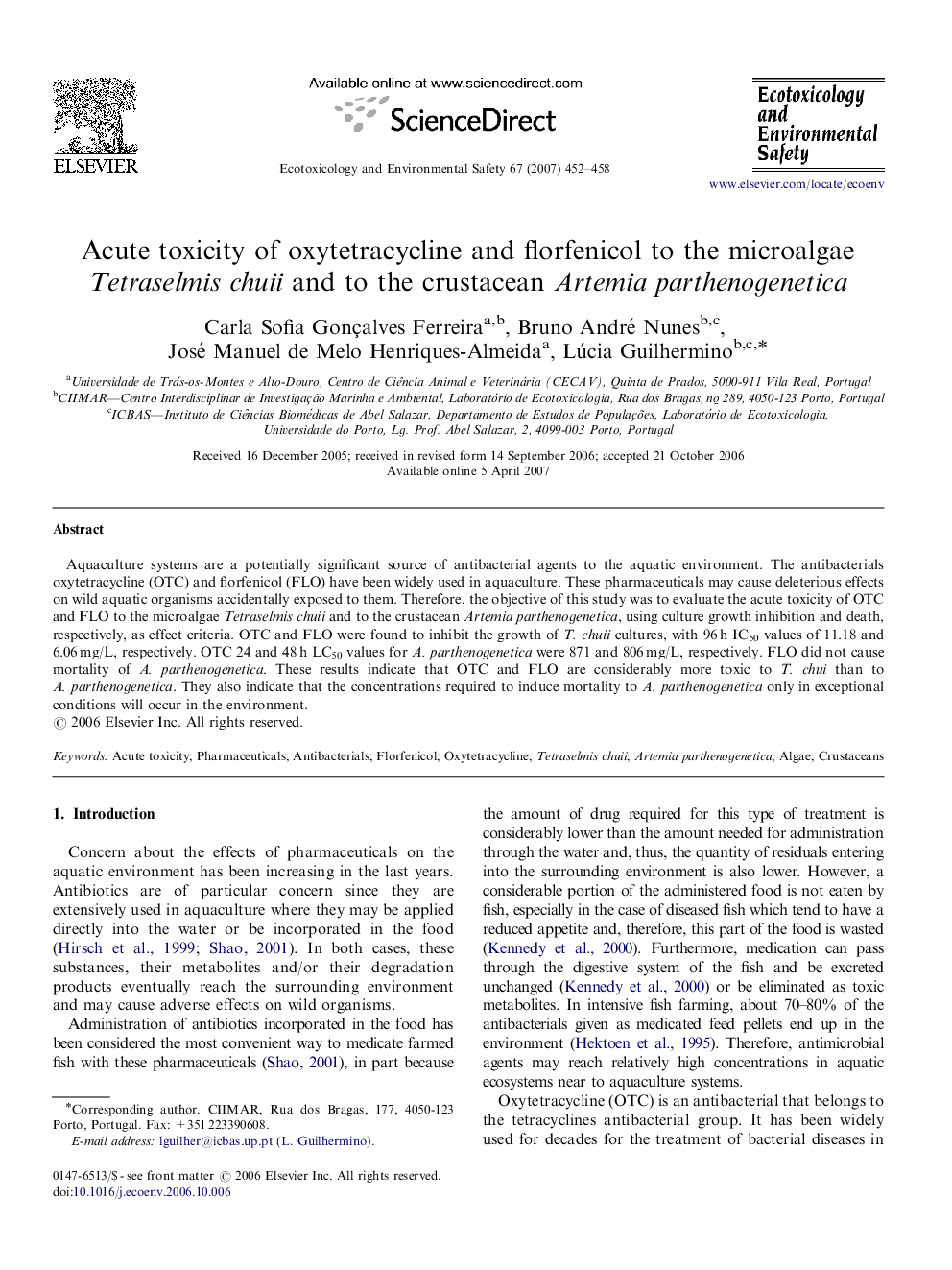| Article ID | Journal | Published Year | Pages | File Type |
|---|---|---|---|---|
| 4422513 | Ecotoxicology and Environmental Safety | 2007 | 7 Pages |
Aquaculture systems are a potentially significant source of antibacterial agents to the aquatic environment. The antibacterials oxytetracycline (OTC) and florfenicol (FLO) have been widely used in aquaculture. These pharmaceuticals may cause deleterious effects on wild aquatic organisms accidentally exposed to them. Therefore, the objective of this study was to evaluate the acute toxicity of OTC and FLO to the microalgae Tetraselmis chuii and to the crustacean Artemia parthenogenetica, using culture growth inhibition and death, respectively, as effect criteria. OTC and FLO were found to inhibit the growth of T. chuii cultures, with 96 h IC50 values of 11.18 and 6.06 mg/L, respectively. OTC 24 and 48 h LC50 values for A. parthenogenetica were 871 and 806 mg/L, respectively. FLO did not cause mortality of A. parthenogenetica. These results indicate that OTC and FLO are considerably more toxic to T. chui than to A. parthenogenetica. They also indicate that the concentrations required to induce mortality to A. parthenogenetica only in exceptional conditions will occur in the environment.
